Elden Ring Player Sues For Content Being Inaccessible Due to Skill Issues
An Elden Ring player, Nora Kisaragi, is suing Bandai Namco and FromSoftware in Massachusetts small claims court. Kisaragi alleges that significant game content is intentionally hidden behind the games' high difficulty, constituting false advertising. This claim, made on 4chan, asserts that FromSoftware games contain a "whole new game… hidden inside," obscured by deliberate design choices.
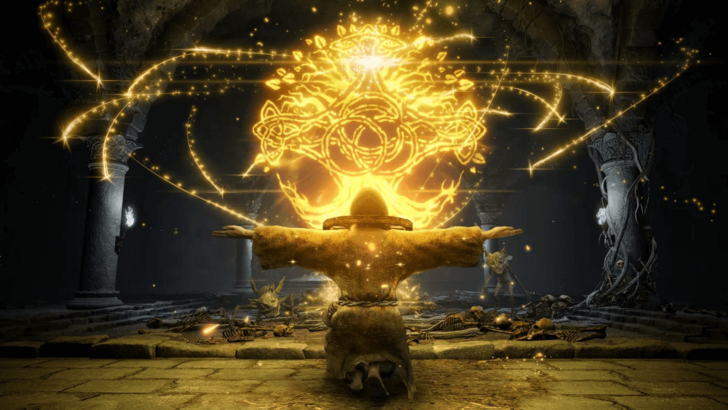
Kisaragi's argument rests on alleged "constant hints" from developers, citing examples like Sekiro's art book and statements by FromSoftware President Hidetaka Miyazaki. However, the plaintiff lacks concrete evidence, relying instead on interpretation of these hints. The core of the lawsuit is the assertion that players paid for inaccessible content without knowledge of its existence.
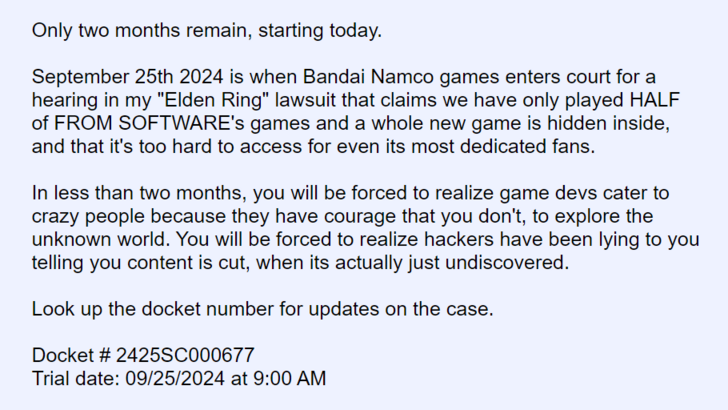
The lawsuit's viability is questionable. Even if hidden content existed, dataminers would likely have uncovered it. The presence of unused assets in game code is common industry practice, not necessarily indicative of intentional concealment. While Massachusetts small claims court allows individuals over 18 to sue without an attorney, the judge will assess the case's merit. Kisaragi might attempt to argue under Consumer Protection Law, claiming deceptive practices, but proving this will be extremely difficult without substantial evidence. The potential damages are also limited.
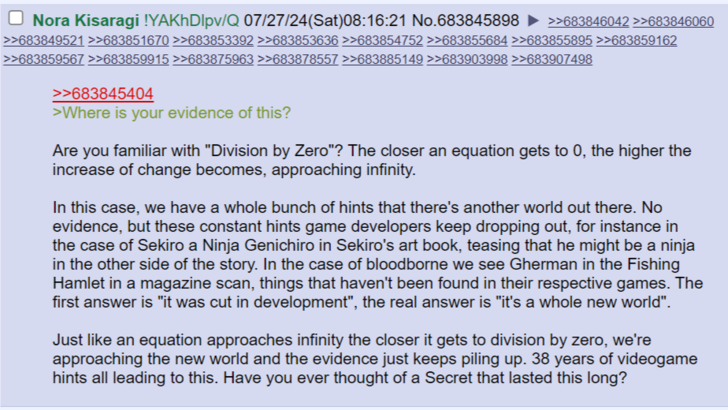
Despite the low probability of success, Kisaragi's stated goal is not financial gain, but to force Bandai Namco to publicly acknowledge the existence of this alleged "hidden dimension," regardless of the court's decision.
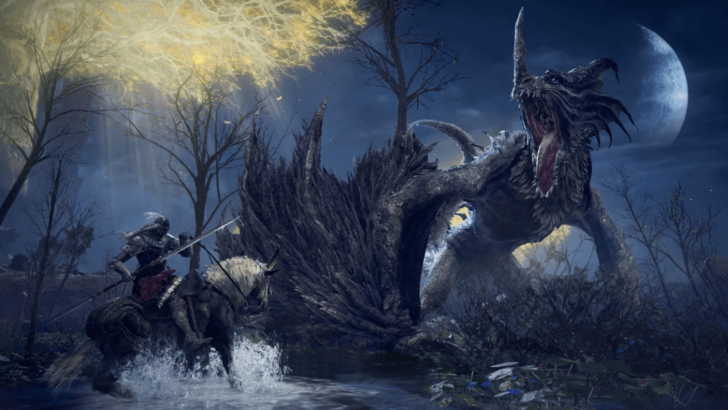
The case highlights the inherent challenges in proving subjective claims about game design and the limitations of small claims court in addressing complex legal arguments. The lawsuit's ultimate outcome remains uncertain, but it's already generated significant online discussion.
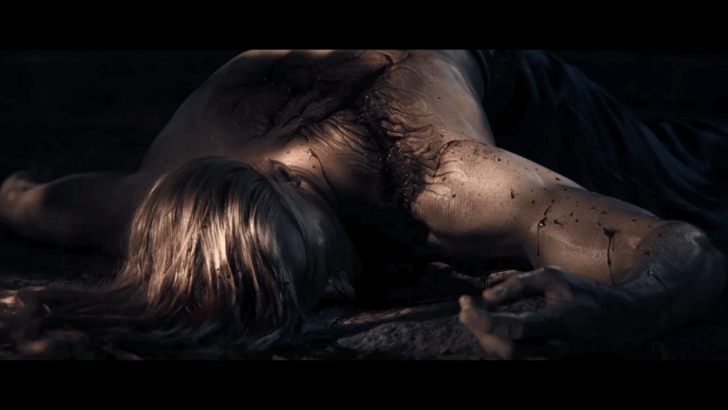
-
BTS Cooking On: TinyTAN Restaurant is launching a new event centered around their hit song, "DNA." This 2017 track, BTS's first Billboard Hot 100 entry and a YouTube billion-view milestone, now inspires a festival experience within the game. The "TinyTAN DNA Festival" lets players construct a perfoAuthor : Dylan Feb 11,2025
-
Path of Exile 2's challenging endgame has sparked debate among players, prompting a response from the developers. Co-directors Mark Roberts and Jonathan Rogers defended the difficulty in a recent interview, emphasizing the importance of meaningful consequences for death. They argued that the curreAuthor : Logan Feb 11,2025
- Hitman Devs' "Project Fantasy" Hopes to Redefine Online RPGs
- The Elder Scrolls: Castles Now Available on Mobile
- Resident Evil Creator Wants Cult Classic, Killer7, to Get a Sequel By Suda51
- Hi-Res Mountain Adventure Arrives on Android
- Deadlock Characters | New Heroes, Skills, Weapons, and Story
- EA Sports FC 25: Breakthrough or Letdown?


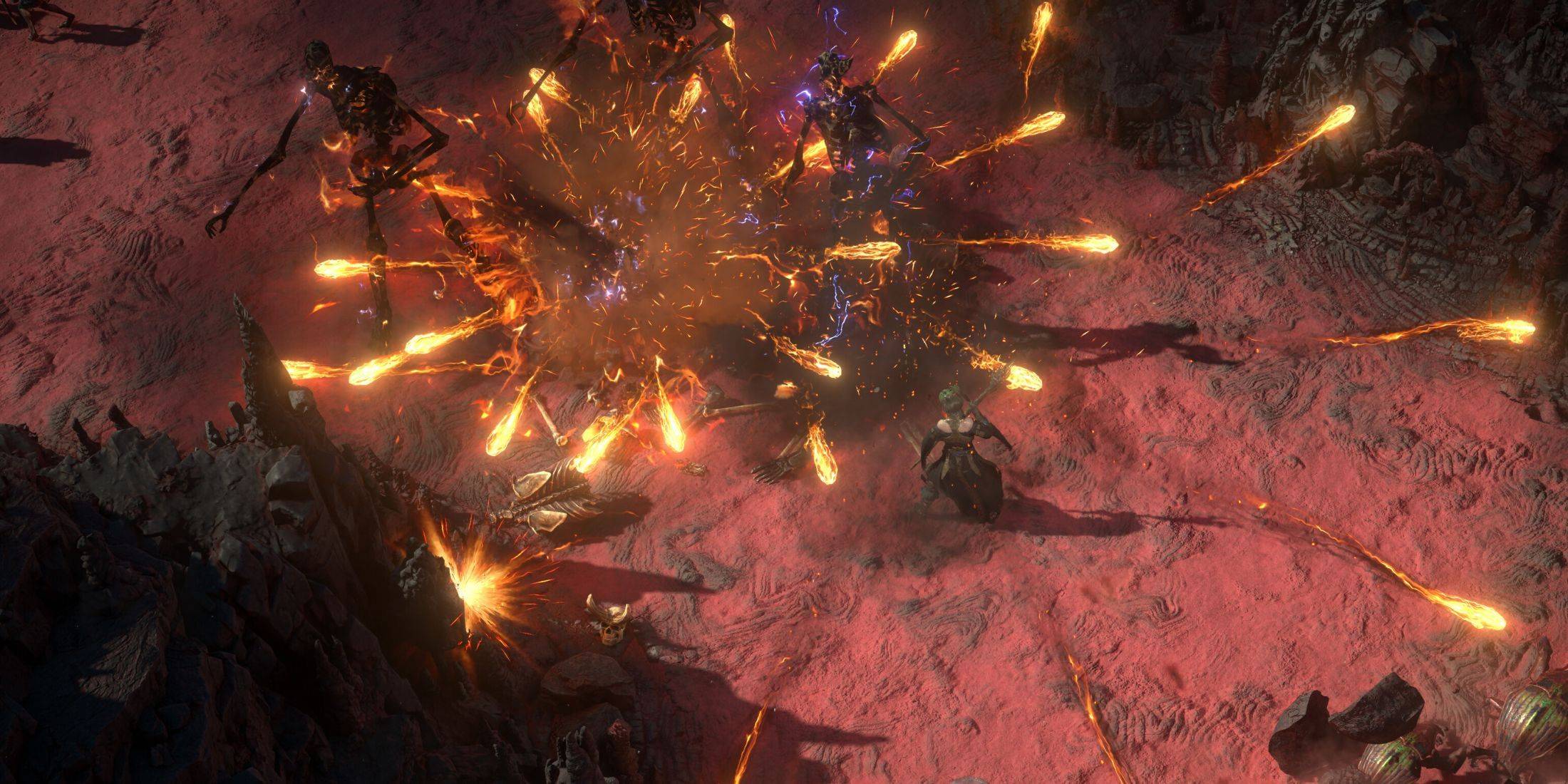






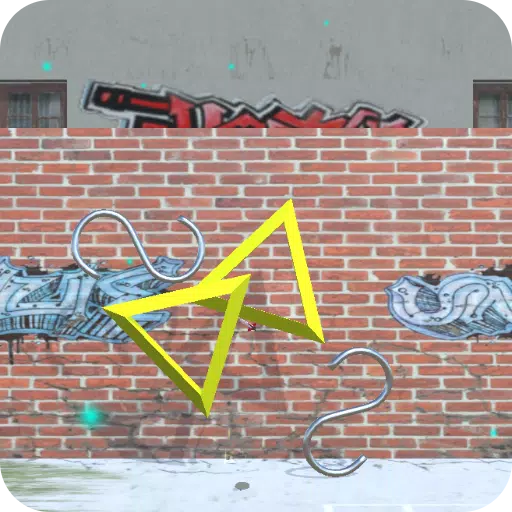
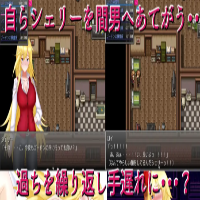









![[777Real]スマスロモンキーターンⅤ](https://images.0516f.com/uploads/70/17347837276766b2efc9dbb.webp)


